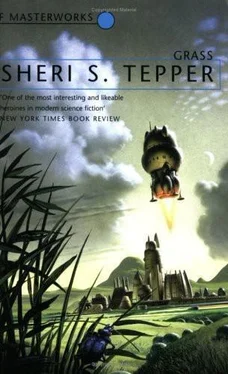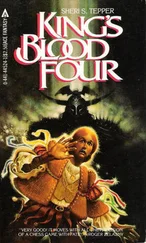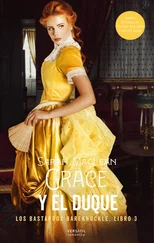He laid fingers on his lips, over his eyes, noting that he said nothing, saw nothing, and then departed. He returned to say yes, they would come tomorrow, and Marjorie sent an enigmatic message on the tell-me which only Rowena would understand. While he was there, she asked Persun to explain something to her.
“At the reception, Sylvan said we would all be throwing dead bats at one another, Persun. What did he mean?”
“The Hippae do it,” he said. “At least, so I hear. Sometimes on the hunt they do it. They kick dead bats at one another.”
“Dead bats?”
“They are everywhere lady. Many dead bats."It made no sense to Marjorie. She made a note in her book for later inquiry. There was no time now. “Rowena will talk to me,” Marjorie said to Rigo. “I think we may find this has opened a door.”
“Only while she’s in this state. When she grows calm, she’ll close us off again.”
“You don’t know that that’s true.”
“I believe it is,” he said stiffly. He had been stiff with Marjorie ever since the reception, since he had seen her dancing with Sylvan with that look on her face. She recognized his stiffness as barely withheld anger, but she believed his discomfort had been caused by Eugenie. Long ago she had chosen not to notice how matters went between Rigo and Eugenie, so she did not seem to notice now. Because she made no response to his evident annoyance, he believed she did not care, that she was probably thinking of someone else. So he grew more angry and she more silent; so they danced, a blindfolded minuet.
Something in his manner, however, declared a decision had been made.
“Rigo, you’re not—”
“Yes,” he said firmly. “I have hired a riding master.”
“Gustave was just being—”
“He was saying what all of them feel. That we are not worthy of their attention because we do not ride.”
“It isn’t riding,” she said with loathing. “Whatever it is they do, it isn’t riding. It’s loathesome.”
“Whatever it is they do,” he growled, “I will do it as well as they do!”
“You won’t expect me… or the children…”
“No,” he blurted, shocked. “Of course not! What do you take me for?”
Indeed, what did she take him for? he asked himself. They were in this mess because of Eugenie, but Marjorie had not once reproached him for bringing Eugenie here, where Eugenie certainly did not belong. As a result he felt guilt toward Marjorie and chafed under the feeling. He felt he had ill-used her even though she showed no signs of caring, not now, not ever. She had never showed hostility toward him when he spent time with Eugenie, never showed anger that he was sharing another relationship. She never said anything bitter, never threatened anything. She was always there, unfailingly correct, concerned, always agreeable, acting appropriately under every circumstance, even those which he knew he had created especially to try her. He sometimes told himself he would give his soul if she would weep or scream or throw herself at him or away from him, but she did nothing of the kind.
He wondered if she confessed anger or jealousy to Father Sandoval. Did she tell him what she felt? Did she cry?
Long ago he had told himself that Marjorie would never love him as he had dreamed she would because she had given all her love to horses. He had even thought he hated Marjorie’s riding because she gave the horses the thing she would not give him — her passion. Horses. Even more than motherhood, or her charities.
But now he wondered if that were true. Was it really horses who had taken her heart? Or had she merely been waiting for something else? Someone like Sylvan bon Damfels, perhaps? What did she take him for?
He had to ask her. “Marjorie, did Sylvan bon Damfels say anything to you while you were dancing?”
“Say anything?” She turned an anxious glance upon him, still fretting over his intention to ride with the bons. not caring about anything else. “Sylvan? What kind of thing, Rigo? As I recall, he said conventional things. He complimented me and Stella on our gowns. He dances well — Since he wasn’t one of the ones Pollut warned us about, I could relax enough to enjoy the dance. Why? What do you mean?”
“I wondered.” He wondered what she was concealing. “What has Sylvan to do with…”
What did Sylvan have to do with? With the way Rigo felt, seeing her. With the fact that Sylvan rode while he, Rigo, did not. He would not ask himself what the two things had to do with one another. He would not consider it — “Nothing. Nothing. I won’t expect you and the children to ride in the aristos’ hunt.”
“But why must you!”
“Because they will not tell me anything until they trust me, and they will not trust me until I share their… their rituals!”
She was silent, grieving, not showing it on her face. There was malice here upon Grass, malice directed at them, at the foreigners. If Rigo rode, he would ride into that malice as into quicksand. “You won’t change your mind.” It was not a question but a statement, and he did not know how hopelessly she said it, all the love she thought she owed him hanging on the answer. “You won’t change your mind, Rigo.”
“No.” In a tone that meant he would not discuss it. “No.”
An awkward machine, the riding machine. Awkward and heavy, but little more ponderous than the riding master, Hector Paine, with his dour face and ominous expression and black garb, as though he were in mourning for all those he had taught how to die.
Rigo had picked an unused room in the winter quarter to use as a riding salon, and he came there with Stella, she very busy playing Daddy’s little girl. There Rigo heard with disbelief that he would be expected to start his lessons at four hours per day. Stella did not seem to hear, did not seem to be paying attention. She was stroking the riding machine, humming to herself, not seeming to notice anything much.
The black-clad instructor was emphatic. “In the morning, an hour exercise, then an hour ride. Again later in the day. By the end of the week, perhaps we can manage three hours, then four. We work up to twelve hours at a time, every other day.”
“My God, man!”
Stella felt the blunted barbs on the neck of the gleaming simulacrum, ran her finger around the loop of the reins where they hung on the lowest barb.
“Did you think it was easy, sir? Hunts often last for ten or eleven hours. Sometimes they go on longer.”
“That leaves little time for anything else!”
“To those who Hunt, Your Excellency, there is nothing else. I thought you would have noticed that.” There was nothing sneering in the man’s voice, but Rigo gave him a sharp look. Stella had drifted away to a corner where she sat down behind some piled furniture, being inconspicuous, being unnoticed, eyes avid.
“You were available on short notice,” Rigo snarled.
“I am available because Gustave bon Smaerlok told me to be available.”
“He hopes to find me incapable, eh?”
“He would be gratified if you proved unable, I think. I speak only from impression, not from anything he has said.”
“And have you agreed to report to him?”
“Only to tell him when I believe you are capable of riding in a Hunt. I will tell you this, Your Excellency. With the young ones, we begin before they are two years old — what would that be in your terms? Ten or eleven years of age? While they are still children we begin working every other day, every week, every period, throughout the seasons, perhaps for a year. A Grassian year. More than six of yours.”
Rigo did not answer. For the first time he began to realize that he might not have long enough to ride to the hounds. Not if it took him as long as the children…
Читать дальше












